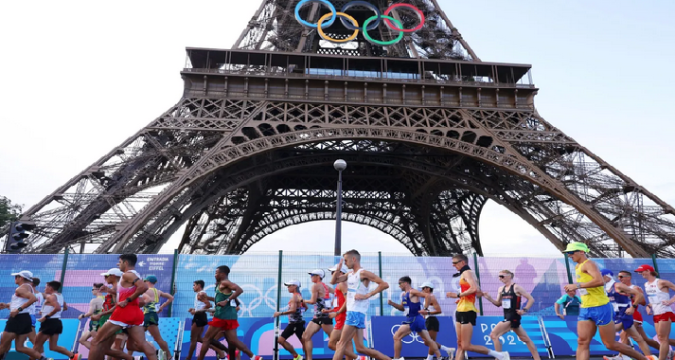
In addition to being the biggest athletic event in the world, the Olympic Games are also one of the biggest commercial endeavors in international sports. The Olympics have developed into a multibillion dollar industry over the last few decades, with the combination of global competitiveness, economic interests, and athletic success having a significant impact on the market. This research will examine the evolution of the Olympic sports industry, with a particular emphasis on sponsorships, television rights, and the financial effects of hosting the Games.
Olympic Sports’ Commercialization
The first Olympic Games were based on amateurism, with competitors competing only out of respect for their home countries and without any financial gain. But when international competition drew bigger crowds and increased media interest during the 20th century, the Games’ financial potential started to show. An important change occurred at the 1984 Summer Olympics in Los Angeles when the organizers adopted a commercial approach that mostly depended on television rights and sponsorship deals to make the event successful.
Since then, this change in strategy has become the norm, with the International Olympic Committee (IOC) running the Games like a multinational corporation. A few key pillars support the IOC’s financial model: ticket sales, television rights, and corporate sponsorships. The most profitable of these revenue streams are sponsorships and television rights.
Sponsorships: The Olympic Brand’s Engine
Corporate sponsorships are one of the main sources of income for the Olympic Games. Multinational companies are able to sponsor the Games in exchange for worldwide marketing rights thanks to the Olympic Partners (TOP) program established by the IOC in the 1980s. These businesses, which include well-known brands like Coca-Cola, Toyota, and Intel, spend hundreds of millions of dollars to connect with the Olympic brand and advertise to a global consumer base. The allure of sponsoring the Olympics is not limited to the enormous viewership—estimated to be in the billions—but also to the favorable connotation with principles such as excellence, unity, and fair play.
The influence of Olympic sponsorship goes much beyond the two-week competition period. By utilizing the famous Olympic rings and the ideals they stand for, brands exploit their affiliation with the Olympics to support long-term marketing initiatives. For these businesses, the investment frequently results in more brand trust, customer loyalty, and worldwide visibility.
Rights to Broadcast: An International Event
The IOC also makes a considerable profit from the selling of television rights. Knowing that the Olympic Games draw massive audience worldwide, media firms spend billions of dollars for the exclusive right to telecast Olympic activities in their various nations. For instance, NBCUniversal, the company in charge of U.S. Olympic broadcast rights, committed to paying more than $7.75 billion for those rights through 2032. This incredible amount is a reflection of the Games’ popularity on a worldwide scale as well as the chance to draw large crowds.
In the digital era, broadcasting rights have increased in value. Olympic activities are now available on a variety of channels in addition to traditional television, such as mobile devices, social media, and digital streaming services. Due to this increase, marketers now have the ability to target particular audiences with individualized content, creating new potential for advertising. As a result, in terms of worldwide reach and media attention, the Olympics still rule the international sports scene.
The Olympics’ Economic Impact
The IOC and large sponsors get money from the Games, while host towns have to deal with a more difficult financial situation. Large infrastructural expenditures are needed to host the Olympics, including building sports complexes, transportation networks, and lodging for competitors and guests. These expenses can reach billions of dollars, leaving some host towns deeply indebted long after the Games are over.
But the host nation and city may also reap large economic rewards from the Olympics. Local economies can benefit from the inflow of tourists, media attention, and international exposure, particularly in industries like retail, hospitality, and tourism. In addition, the Games provide towns a singular chance to present themselves globally, which may draw in more business and tourists in the future.
These advantages aren’t assured, though. A number of towns have come under fire for expending excessive amounts of money on Olympic initiatives that never paid off in the long run. For instance, Brazil had severe financial difficulties following the 2016 Rio Olympics, including unutilized venues and continuing maintenance expenses.
In conclusion, the business of international rivalry
Because of the convergence of sports, media, and commerce, the Olympic Games have developed into a global corporate behemoth. The Olympic business depends heavily on sponsorships and media rights to make billions of dollars and bring the Games to a global audience. The economic effects of hosting the Games, however, are more complex, with certain towns benefiting financially while others suffer.
The Olympic Games will continue to be a special venue where the worlds of sports and commerce mix, providing chances for both physical excellence and economic success, even as the business of international competition changes.